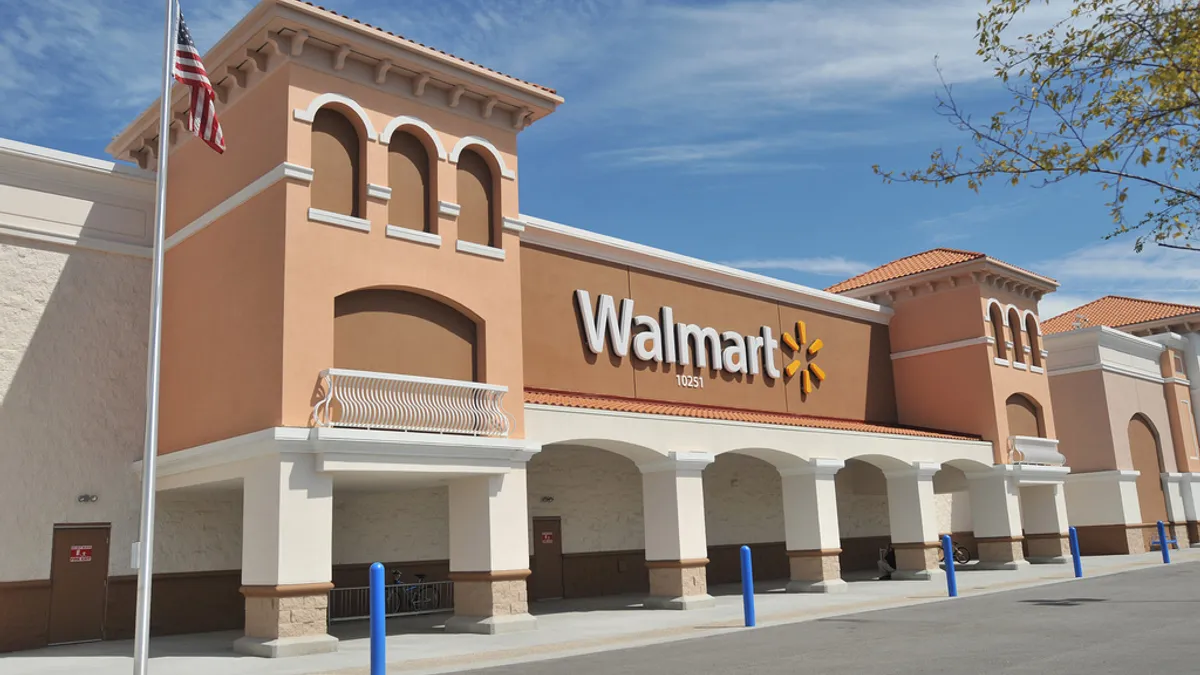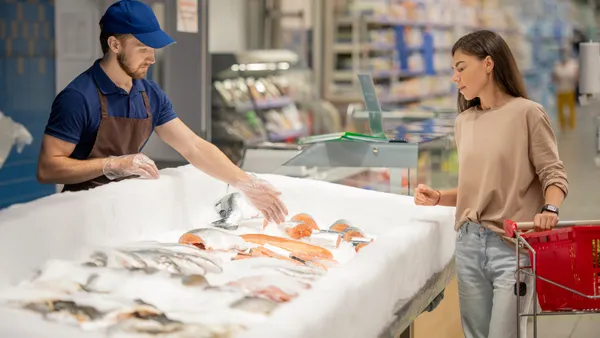Dive Brief:
-
Walmart announced on Tuesday a strategic plan to significantly reduce the plastic waste of its private brand packaging, according to a company press release. Walmart also wants to promote consumer-friendly recycling labels.
-
Walmart is partnering with its private labels on a number of initiatives, including achieving 100% recyclable, reusable or compostable packaging for private brands by 2025; using 20% post-consumer recycled content in private brand packaging by 2025; labeling all food and consumable private brand packaging with the How2Recycle label by 2022; eliminating the non-recyclable packaging material PVC in general merchandise packaging by 2020 and decreasing private brand plastic packaging.
-
The initiative was announced at Walmart's annual supplier forum, and is expected to impact more than 30,000 SKUs. The retailer wants national brands to follow its lead to reduce plastics in packaging, and is providing a "recycling playbook" to help others achieve their sustainability goals, the company stated in the release.
Dive Insight:
When Walmart makes decisions, other retailers pay attention. The company's latest push into sustainability may mark a turning point in how large businesses push for supply chain reform when it comes to packaging and plastics.
It's not the corporation's first foray into this type of program. In 2008, then-CEO Lee Scott announced a packaging reduction program among other sustainability efforts, including a plan for Walmart to become more energy efficient with suppliers. More recently, the company launched Project Gigaton in 2017 with an eye toward decreasing 1 billion metric tons of greenhouse gases by 2030. Project Gigaton also addresses sustainable packaging efforts within the supply chain and the company's larger goal of zero plastic waste.
"As a global retailer that has set an ambitious aspirational goal to create zero waste, we fully recognize that reducing plastic waste by increasing packaging circularity is an area where Walmart can lead," Laura Phillips, Walmart's senior vice president of global sustainability, said in a statement.
Several grocers have stepped up to reduce waste and increase sustainability as well. Kroger continues to make strides with its Zero Hunger Zero Waste initiative aimed at reducing food waste, and also plans to eliminate single-use plastic bags by 2025. In its 2018 Sustainability Update, Albertsons committed to reducing carbon emmissions, and Hy-Vee is piloting an app that will help cut down on food waste.
A number of other large sustainability efforts have been announced since the start of 2019. Procter & Gamble, Nestlé, PepsiCo, Unilever, The Body Shop and other companies signed on to Loop's reusable and refillable packaging initiative, which is currently being tested in the U.S. and France. Additionally, L'Occitane committed to 100% sustainable plastics, Calvin Klein introduced a new product label to help consumers properly recycle its packaging and personal care retailer By Humankind landed $4 million in seed funding to supply products that ultimately reduce single-use plastic waste.














